 “The most valuable asset you’ll ever have is your mind and what you put into it.” (Brian Tracy) Lifelong learning is just that – constantly investing in your mind and therefore, your life. We asked Leigh Andrews from bizcommunity.com to give us her take on the importance of lifelong learning and why it’s critical to future success. Read her story and benefit from her insights.
“The most valuable asset you’ll ever have is your mind and what you put into it.” (Brian Tracy) Lifelong learning is just that – constantly investing in your mind and therefore, your life. We asked Leigh Andrews from bizcommunity.com to give us her take on the importance of lifelong learning and why it’s critical to future success. Read her story and benefit from her insights.
This is my story about why I love lifelong learning. I completed my official tertiary studies over a decade ago. My study story is probably similar to that of most – suddenly school’s coming to an end and you don’t really have any idea what you want to study at tertiary level.
This is how that next scary part went for me – how I directed “The Rest of my Life”:
DO what you love
I’d always enjoyed writing so a journalism degree was the obvious choice. I’d chosen psychology as my second major, though I ended up enjoying the undergrad psychology content so much, I decided to focus on that for my honours year. I passed well, and was ready to enter the world of work. But one does not simply study psychology to honours level then start working in the field (sob), so instead I fell back on my first love – journalism.
As a strong motivator for lifelong learning, it makes sense to pursue something you love. If you work in online marketing, it makes sense to learn more about social media advertising. If you’re in sales, it makes sense to learn about the customer purchasing journey. But, it doesn’t make sense to spend time and money on something you don’t actually enjoy. Choose wisely!
DON’T back down from a challenge
I started out in community newspapers, then lifestyle magazines. I then hopped into media monitoring and B2B publishing before I switched back to hard news reporting, and found a passion for the immediacy of all things digital. But journalism had changed since then. Today, journalism (online too)means you’re constantly on the go, adding bits, refining others. You’re skimming Google Alerts, scrolling through Facebook feeds for user-generated breaking news, embedding tweets, cropping images, overlaying logos, getting someone else to scan for typos and finally pressing ‘publish’ – often all in the space of an hour. A few of my favourite sites for staying up to date with current trends and changes in the digital sphere are: Mashable, MOZ, TrendWatching, SmartInsights and We are Social Media.
The point of lifelong learning is to make career changes or challenges that much more manageable. Work landscapes are always evolving and will continue to do so. What happens when you commit to staying up to speed – in your career and your passions – is that you evolve and move with the times. This gives you agility and opens more opportunities than if you were “standing still” so to speak.
DO learn everything you can
Much of that on-the-job training is based on just one aspect of a computer program. I didn’t want to keep asking ‘the experts’ how to do other bits and pieces. And I wanted to know it all. And so I decided to upskill myself.
Red & Yellow is widely known for the framed picture that says “I am a sponge” which hangs in the entrance of the Cape Town campus. It is the quintessential phrase that speaks to lifelong learning. While it’s good to ask ‘the experts’, they are there to guide you while you find your way. When you adopt the sponge approach, you become open to the fact that you could one day be the expert helping others along their journey.
DO consider your options
I did online short courses through a number of institutions on those cutting edge skills I need to do the job better. Advanced sub-editing, mastering more than just cropping in Photoshop, the overly technical aspects of SEO, digital marketing, social media marketing, principles of human-centred design to love the life you live (the last one completed just this weekend). There will doubtless be more to come, as technological change demands a change in the way we work, which doesn’t always come naturally.
Education is no longer limited to a students-in-a-classroom approach. Thanks to the internet and various formats available, you can educate yourself in many different ways: workshops, online courses, MasterClasses, talks by trailblazers. The options are there. Don’t limit yourself.
DO find new ways to think (creatively)
Thinking back over my career so far, it’s the small things I’ve learned along the way that have had the biggest impact. The decision to self-educate and give in to your curiosity and hunger for more. Setting aside an evening or a weekend and hone a skill, pass a test online. Adding a new certificate to the physical wall of proof of knowledge in our study.
[bctt tweet=”Formal lectures may have set me up for the real-world, but nothing beats being a sponge and learning new ways to be better at what you do.” ~ Leigh Andrews @ramblinglitchi” username=”redandyellowed”]You can’t get different results if you just keep doing the same thing over and over, so why is it any different when it comes to your knowledge and skills base. The more you learn, the more you know. The more you know, the more you grow. And so it goes. Lifelong learning is not a habit to entrench. It’s a means of prolonging life, boosting your career success and showing you creative ways to think that you’ve not thought of before.
Albert Einstein himself said: “Intellectual growth should commence at birth and cease only at death.” So hopefully I have a long way to go.
I won’t regurgitate others’ lists for you, as you can Google them yourself. Here are a few starters to motivate you and fire that passion:
• 10 ways lifelong learning will benefit your personal success
• 5 key benefits of lifelong learning
• Top 10 Benefits Of Lifelong Learning
• What we learn about lifelong learning from children
~ Leigh Andrews, Editor in Chief at bizcommunity.com
Passionate about coffee, milkshake and issues of inclusion, equality and diversity. She was the only SA finalist shortlisted for the Women in Marketing #WIMawards2017.


 “The most valuable asset you’ll ever have is your mind and what you put into it.” (Brian Tracy) Lifelong learning is just that – constantly investing in your mind and therefore, your life. We asked Leigh Andrews from bizcommunity.com to give us her take on the importance of lifelong learning and why it’s critical to future success. Read her story and benefit from her insights.
“The most valuable asset you’ll ever have is your mind and what you put into it.” (Brian Tracy) Lifelong learning is just that – constantly investing in your mind and therefore, your life. We asked Leigh Andrews from bizcommunity.com to give us her take on the importance of lifelong learning and why it’s critical to future success. Read her story and benefit from her insights.
